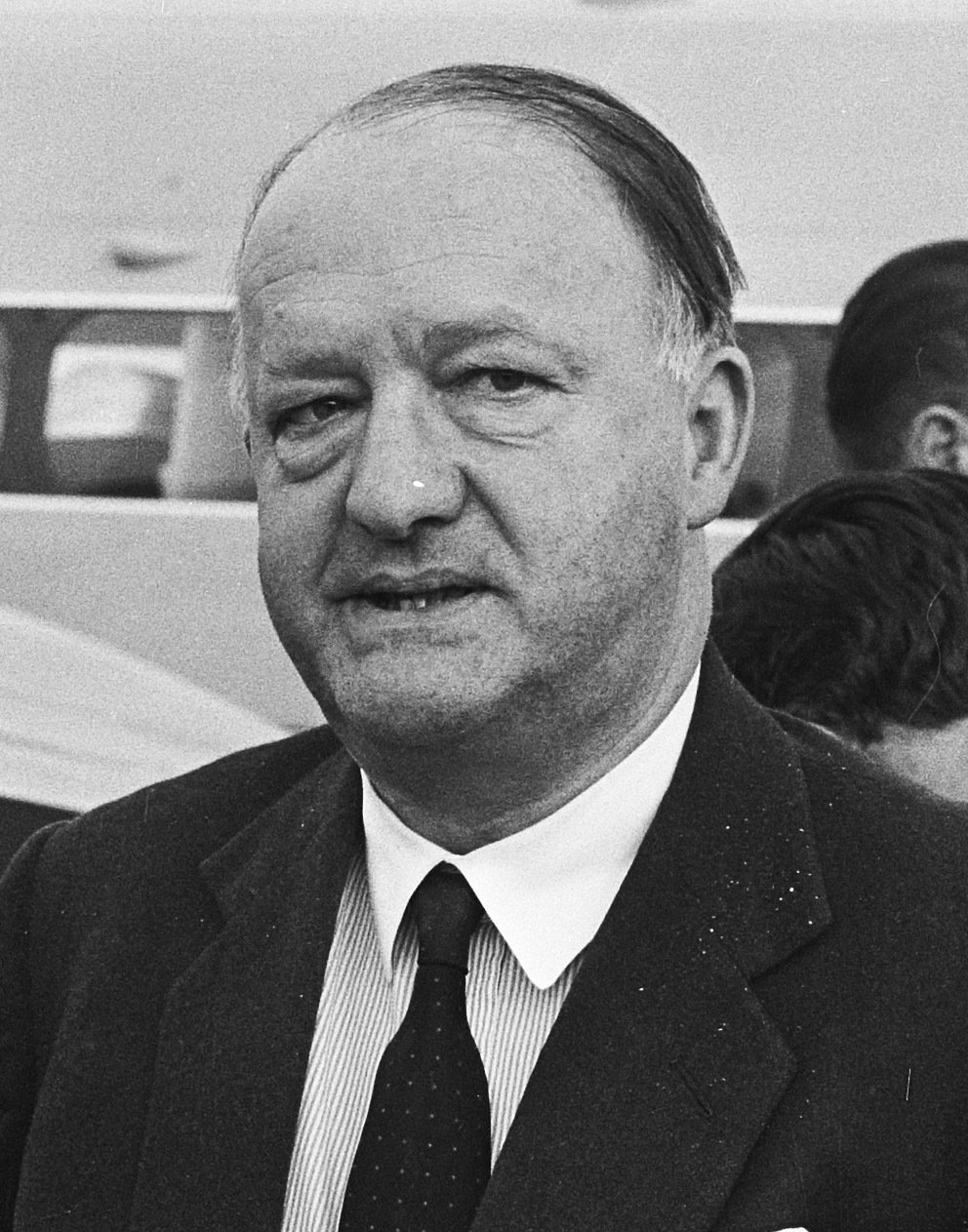“Conservatives have always been ready to use the power of the State.”
Origine: Our Way Ahead (Conservative Political Centre, 1956), p. 10.
Richard Austen Butler, Baron Butler of Saffron Walden, , generally known as R. A. Butler and familiarly known from his initials as Rab, was a British Conservative statesman. The Times obituary called him "the creator of the modern educational system, the key-figure in the revival of post-war Conservatism, arguably the most successful chancellor since the war and unquestionably a Home Secretary of reforming zeal." He was one of his party's leaders in promoting the post-war consensus through which the major parties largely agreed on the main points of domestic policy until the 1970s, sometimes known as "Butskellism" from an fusion of his name with that of his Labour counterpart Hugh Gaitskell.Born into a family of academics and Indian administrators, Butler enjoyed a brilliant academic career before entering Parliament in 1929. As a junior minister, he helped to pass the Government of India Act, 1935. He strongly supported the appeasement of Nazi Germany in 1938–39. Entering the Cabinet in 1941, he served as Education Minister . When the Conservatives returned to power in 1951 he served as Chancellor of the Exchequer , Home Secretary , Deputy Prime Minister and Foreign Secretary .
Butler had an exceptionally long ministerial career and was one of only two British politicians to have served in three of the four Great Offices of State but never to have been Prime Minister, for which he was passed over in 1957 and 1963. At the time, the Conservative Leadership was decided by a process of private consultation rather than by a formal vote. After retiring from politics in 1965, Butler was appointed Master of Trinity College, Cambridge.
Wikipedia

“Conservatives have always been ready to use the power of the State.”
Origine: Our Way Ahead (Conservative Political Centre, 1956), p. 10.
Fundamental Issues (Conservative Political Centre, 1946), p. 7.
“Conservatives were planning before the word entered the vocabulary of political jargon.”
About the Industrial Charter (Conservative Political Centre, 1947), pp. 6-7.
Butler as Chancellor of the Exchequer (30 November 1951), quoted in Correlli Barnett, The Verdict of Peace. Britain Between Her Yesterday and the Future (Pan, 2002), p. 1.
We have the winter before us, and we have a great deal of political rough weather, but in that rough weather, do not let us forget the joint idea of peace which animates us all.
Speech on the Munich Agreement http://hansard.millbanksystems.com/commons/1938/oct/05/policy-of-his-majestys-government (5 October 1938).
About the Industrial Charter (Conservative Political Centre, 1947), p. 6.
About the Industrial Charter (Conservative Political Centre, 1947), pp. 4-5.
John Colville's diary entry for 10 May 1940, The Fringes of Power. Downing Street Diaries. 1939-1955 (London: Hodder and Stoughton, 1985), p. 122.
Speech in Gloucester (10 July 1954), quoted in R. A. Butler, The Art of the Possible (London: Hamish Hamilton, 1971), p. 173.
Speech on Indian Constitutional Reform http://hansard.millbanksystems.com/commons/1933/mar/29/indian-constitutional-reform (29 March 1933).
Speech at the Conservative Party conference of 1954, quoted in Ralph Harris, Politics Without Prejudice. A Political Appreciation of The Rt. Hon. Richard Austen Butler C.H., M.P. (London: Staples Press, 1956), p. 159.
Remark at the annual conference of the Conservative and Unionist Teachers' Association in London (17 June 1961), quoted in The Times (19 June 1961), p. 7
Home Secretary
Remark at the annual conference of the Conservative and Unionist Teachers' Association in London (17 June 1961), quoted in The Times (19 June 1961), p. 7
Home Secretary
Speech to the quarterly meeting of the National Production Advisory Council on Industry (28 May 1954), quoted in The Times (29 May 1954), p. 3
Chancellor of the Exchequer
Speech to the quarterly meeting of the National Production Advisory Council on Industry (28 May 1954), quoted in The Times (29 May 1954), p. 3
Chancellor of the Exchequer
“Butler, of course, is sub-human.”
Evelyn Waugh to Ann Fleming (18 July 1963), Mark Amory (ed.), The Letters of Evelyn Waugh (Weidenfeld and Nicolson, 1980), p. 610.
Speech to the Association of Chief Officers of Police in Bournemouth (25 May 1960), quoted in The Times (26 May 1960), p. 18
Home Secretary
Chancellor of the Exchequer
Origine: Memorandum, 'External Action' (21 February 1952) advocating Operation ROBOT, quoted in Correlli Barnett, The Verdict of Peace. Britain Between Her Yesterday and the Future (London: Pan, 2002), p. 162